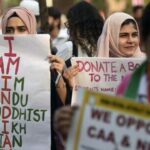ISLAMABAD: With the retirement of 52 senators on Monday night, more than half of the members of the upper house of parliament, the Senate will be in disarray for at least three weeks.
Although senators serve six-year terms, elections are held to replace their retirements every three years. Normally, these elections take place a few days prior to the senators’ terms ending, but that was not possible this time.
Due to the Election Commission of Pakistan’s (ECP) inability to schedule general elections in a timely manner, the delay in holding general elections resulted in the unusual scenario where there was no electoral college.
The ECP states that polling for 48 open positions will take place on April 2 and that the election timetable will be released by the commission on Thursday.
Elections for 48 seats are scheduled for April 2.
Four seats that were previously designated for the former tribal territories will not be up for election since, as a result of their 25th Amendment merger with Khyber Pakhtunkhwa, they were abolished.
There will be seven general seats, two women’s seats, two technocrat/ulema seats, and two seats set out for non-Muslims up for grabs from each province. Furthermore, the Islamabad Capital Territory will elect two senators: one for a general seat and the other for a technocrat/ulema seat.
Due to a constitutional provision, Senate Chairman Sadiq Sanjrani had already resigned from office on February 15 after being elected to the Balochistan Assembly.
Along with Senate Deputy Chairman Mirza Mohammad Afridi, House Leader Ishaq Dar, and Leader of the Opposition Dr. Shahzad Wasim are among the departing senators.
Nomination forms are available from the provincial elections commissioners of Punjab, Sindh, Khyber Pakhtunkhwa, and Balochistan as well as the Election Commission Secretariat in Islamabad. On Friday and Saturday, candidates can turn in their nomination documents to the corresponding returning authorities.
Just seven of the people scheduled to retire are PTI members. These include, among others, Walid Iqbal, Faisal Javed Khan, and Azam Swati in addition to the opposition leader.
Due to its numerical strength in the assembly of Punjab and Khyber Pakhtunkhwa, the party, which entered the Senate for the first time in 2015, emerged as the single largest party in the upper house in March 2021.
Eleven of the sixteen PML-N members and twelve of the twenty-one PPP senators in the upper chamber are also scheduled to finish their terms.
Monday saw the retirement of the following PML-N members: Asadullah Khan Junejo, Kamran Michael, Ishaq Dar, Hafiz Abdul Kareem, Asif Kirmani, Rana Mehmoodul Hasan, Dr. Musadik Malik, Shaheen Khalid, Nuzhat Sadiq, and Sabir Shah.
Rukhsana Zuberi, Khaleda Sikandar, Mohammad Ali Shah, Raza Rabbani, Waqar Mehdi, Keshoo Bai, Quratulain Marri, Anwar Lal Deen, Rubina Khalid, and Shamim Afridi are among the PPP senators who are scheduled to retire. Monday marked the end of the term for Bahramand Tangi, who was ousted from the party but kept his position as a senator.
The terms of office of Talha Mehmood and Maulvi Faiz Muhammad of JUI-F, Farogh Naseem of MQM-Pakistan, Ahmed Khan, Kahuda Babar, Naseebullah Bazai, and Sana Jamali of the Balochistan Awami Party have come to an end.
The only senator from Jamaat-i-Islami, Mushtaq Ahmed, the National Party’s Muhammad Akram and Tahir Bizenjo, and the PML-Functional’s Muzaffar Hussain Shah have also hung up the phone.
Sardar Shafiq Tareen and Abida Azeem of the Pashtunkhwa Milli Awami Party have announced their retirements, and the tenure of independents Dilawar Khan, Hilalur Rehman, and Hidayatullah have ended.








